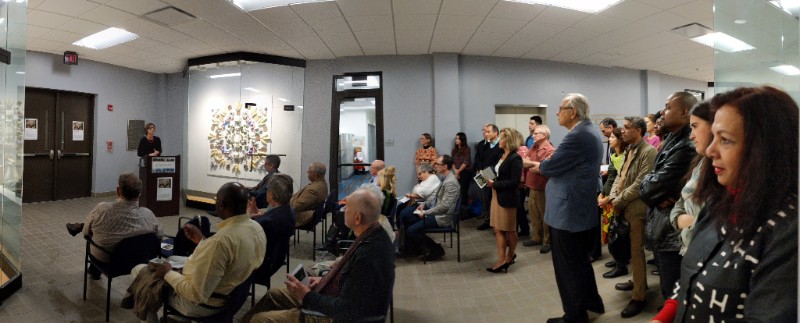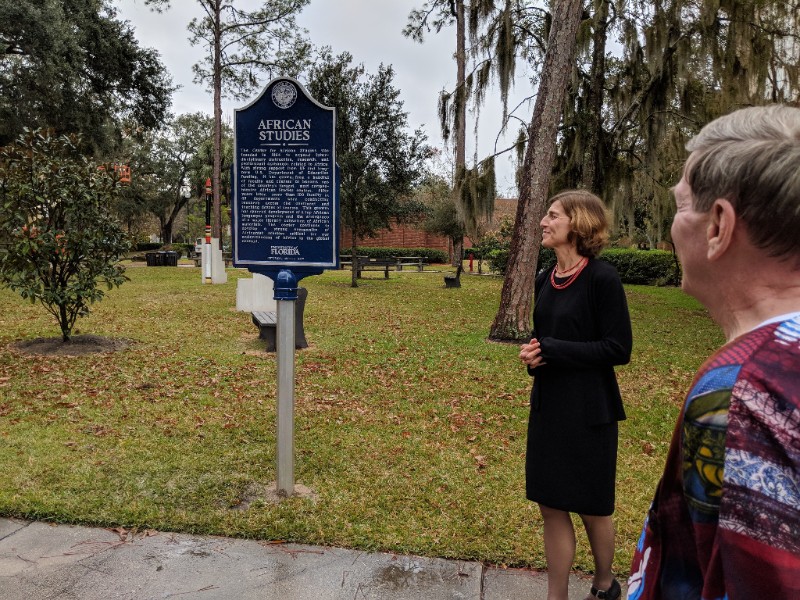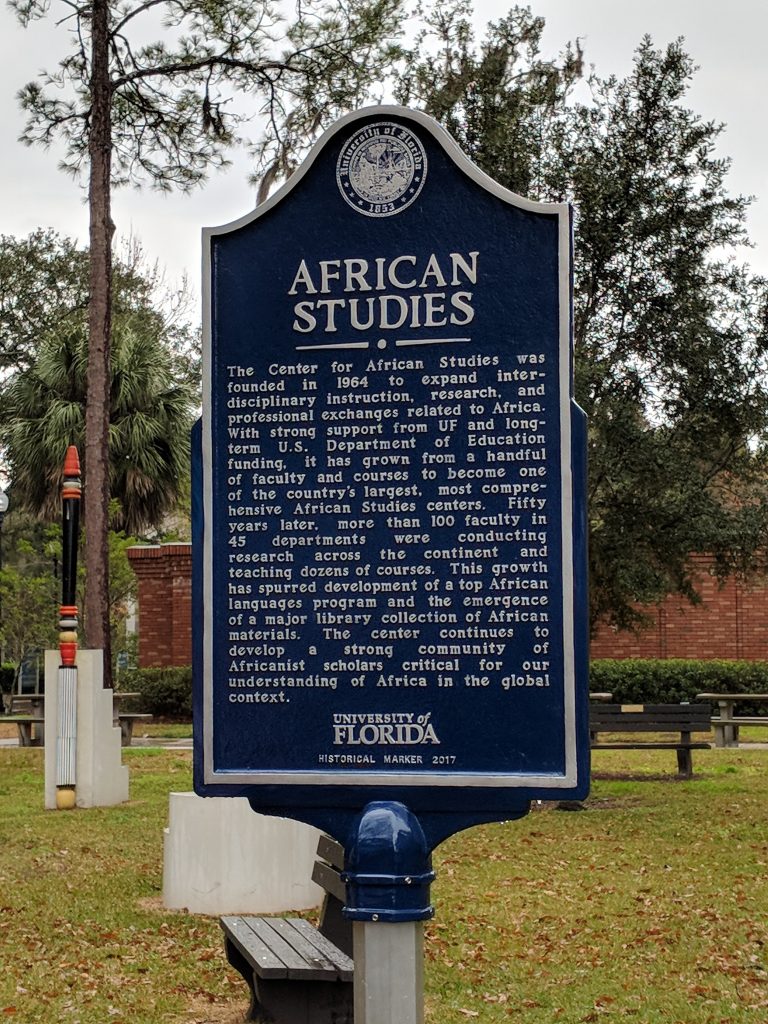
On Friday January 12, the Center for African Studies celebrated the unveiling of the Historical Marker located on Grinter Lawn. The event began with songs by Pazeni Africa Choir, as well as lectures by Brenda Chalfin (Director, Center for African Studies), David Richardson (Dean, College of Liberal Arts and Sciences), Leonardo Villalon (Dean, UF International Center), Hunt Davis (Professor Emeritus, African History), Akintunde Akinyemi (Chair, Languages, Literatures and Cultures Department), Agnes Leslie (Outreach Director, Center for African Studies), and Josee Kapseu (President, African Student Union). The speakers touched on the impact of the Center and its programs, the importance of international education, and how in the 54 years of the Center, faculty, students, and friends have made a difference on campus and globally.

Despite the rain, the event drew a large crowd that gathered around the historical marker to watch it be unveiled by Brenda Chalfin, Todd Leedy, and Hunt Davis. The marker was made in collaboration, with Nina Stoyan-Rosensweig to thank for the idea, Hunt Davis and Todd Leedy to thank for the text, and Joe Kays of research communications responsible for overseeing the production and installation. You can read the text of the historical marker below, or view it on Grinter Lawn in person!

“The Center for African Studies was founded in 1964 to expand interdisciplinary instruction, research, and professional exchanges related to Africa. With strong support from UF and long-term U.S. Department of Education funding, it grew from a handful of faculty and courses to become one of the country’s largest, most comprehensive African Studies centers. Fifty years later, more than 100 faculty in 45 departments conduct research across the continent and teach dozens of courses. This growth spurred development of a top African languages program and the emergence of a major library collection of African materials. The Center continues to develop a strong community of Africanist scholars critical for our understanding of Africa in the global context.”